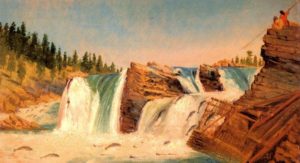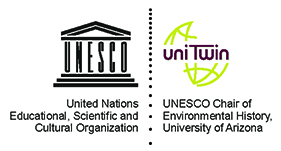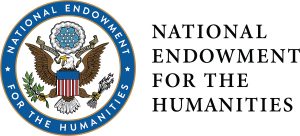GRAND COULEE DAM:
THE INTERSECTION OF MODERNITY AND INDIGENOUS CULTURES
"Grand Coulee Dam" is a grades K-12 teacher workshop that explores how different social groups experience history - actual historical events, and the memory of those events. More specifically, the project unpacks the history of Grand Coulee Dam as a landmark of contested narratives. One narrative celebrated the social,

economic, and cultural power of modernity. The other focused on the loss of indigenous cultural identities and practices. Participants will explore these historical dynamics in discussion with experts, site visits, and engagement with primary historical material including oral histories, art, song, and photographs. Our goal is to equip teachers with unique and meaningful analytical frameworks to engage their humanities and social science students in conversations centered on how social groups experience and interpret transformative changes of the landscape.
The workshop will confront the Grand Coulee Dam as a landmark of alternative perspectives that suggest the complexity, and ultimately, the richness of the American experience. Sessions will be led by scholars, teaching facilitators, and cultural experts. Content will be organized around three central questions: 1) How did Grand Coulee represent the material and moral aspirations of the United States during the mid-20th Century; 2) How did indigenous peoples experience the re-plumbing of the Columbia River valley, and 3) How would we write our own narrative of Grand Coulee? By critically evaluating competing narratives centered on place, teachers will develop lesson plans designed to promote student engagement by grappling with fundamental and enduring questions of historical inquiry and memory appropriate for K-12 students, including questions such as: How do we guarantee the rights of the minority? How do we maintain pluralistic values and practices? How do we define the collective good? And ultimately, do the means justify the ends in pursuit of that "collective good?"
Participants will work with primary historical material including art, song, speeches, material artifacts, and oral histories. In addition, we shall select important works from the secondary literature to help frame critical interpretive questions. Emphasizing experiential outcomes, we will visit Kettle Falls (and the Kettle Falls Historical Center), the Colville Tribal Museum, and the Grand Coulee Dam (and the Grand Coulee Visitor’s Center). Project leaders and faculty come from Eastern Washington University, the University of Arizona, Washington State University, and Maastricht University. Project Co-Directors are

Dorothy Zeisler-Vralsted, Professor of Government and an expert on water governance at Eastern Washington University (EWU), and David Pietz, the UNESCO Chair of Environmental History at the University of Arizona (UA). The Lead Faculty is Benedict Colombi, an Anthropologist from the University of Arizona who is an expert on the plateau tribes of the Pacific Northwest. Our Workshop Facilitator is Francene Watson an expert in high school pedagogy and Native American education. Other faculty and facilitators include experts in Native American history, the history of the U.S. West, environmental history, the history of technology, historical memory, and contemporary indigenous studies.
EQUAL OPPORTUNITY STATEMENT
Endowment programs do not discriminate on the basis of race, color, religion, sex, national origin, disability, age, or sexual orientation. For further information, write to NEH Equal Opportunity Officer, 400 Seventh Street, S.W., Washington, D.C. 20506. TDD: 202/606 8282 (for the hearing impaired only).





